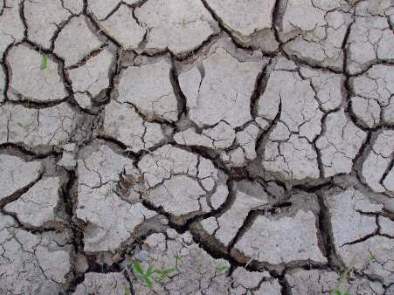Droughts have a major impact on food security, especially for vulnerable populations, and can have long-term socio-economic impacts. Countries reliant on hydropower for electricity generation experience power shortages. Countries reliant on rain-fed agriculture can find that their nation’s GDP is significantly reduced in times of drought.
A regional workshop on Integrated Drought Management takes place in Bratislava at the Slovak Hydrometeorological Institute on 5-6 October 2012. The workshop is a joint initiative of the Global Water Partnership (GWP) Central and Eastern Europe, the GWP Technical Committee and the World Meteorological Organization (WMO). The Slovak Hydrometeorological Institute is hosting the event.
The main objective is to commit to an Integrated Drought Management Programme (IDMP) initiative. "This initiative builds on the technical expertise and intellectual capacities of the GWP Technical Committee, GWP Central and Eastern Europe and WMO, in addressing drought management from an integrated point of view", says Martina Zupan, Chair of GWP Central and Eastern Europe.
The workshop brings together 53 stakeholders from various sectors such as meteorology, water management and agriculture from Central and Eastern Europe and from international organizations including the International Commission for the Protection of the Danube River, the UN Economic Commission for Europe, the Stockholm International Water Institute, the United Nations Convention to Combat Desertification, and the Drought Management Centre for Southeastern Europe.
Participants will identify the institutional framework, a roadmap for 2013-2015 and sources of funding for a regional Integrated Drought Management Programme. Experts from other regions affected by drought such as the Mediterranean, Central Asia and South East Asia will share their approach to drought mitigation.
Recently, GWP Central and Eastern Europe (GWP CEE) developed a mapping study (Inception Report) to review existing policies and strategies. The work focused on identifying experts from outside the water sector to contribute to the work of GWP CEE. The Inception Report is based on information obtained from GWP CEE Country Water Partnerships, and therefore it reflects the realities in specific countries rather than in the entire region.
GWP CEE has proposed four national and regional initiatives for an Integrated Drought Management Programme:
- Preparedness measures including investment and non-investment measures, e.g. a drought insurance system.
- Enhancement and further development of a drought monitoring and early warning system.
- Capacity building programs for water managers and farmers to be developed and implemented.
- Sharing experiences through case studies, i.e. showcasing good practices of application in integrated drought management as an integral part of water and land management on the national and international level including transboundary basins, to increase knowledge.
The workshop participants will build on these proposals to finalize and approve the GWP CEE component of the GWP/WMO Integrated Drought Management Programme.
Contact
GWP Central and Eastern Europe
Regional Secretariat
Bratislava, Slovakia
Mr. Richard Muller, Communications Officer
Telephone: +421 2 5941 5294
E-mail: gwpcee[at]shmu.sk
Website: www.gwpcee.org

